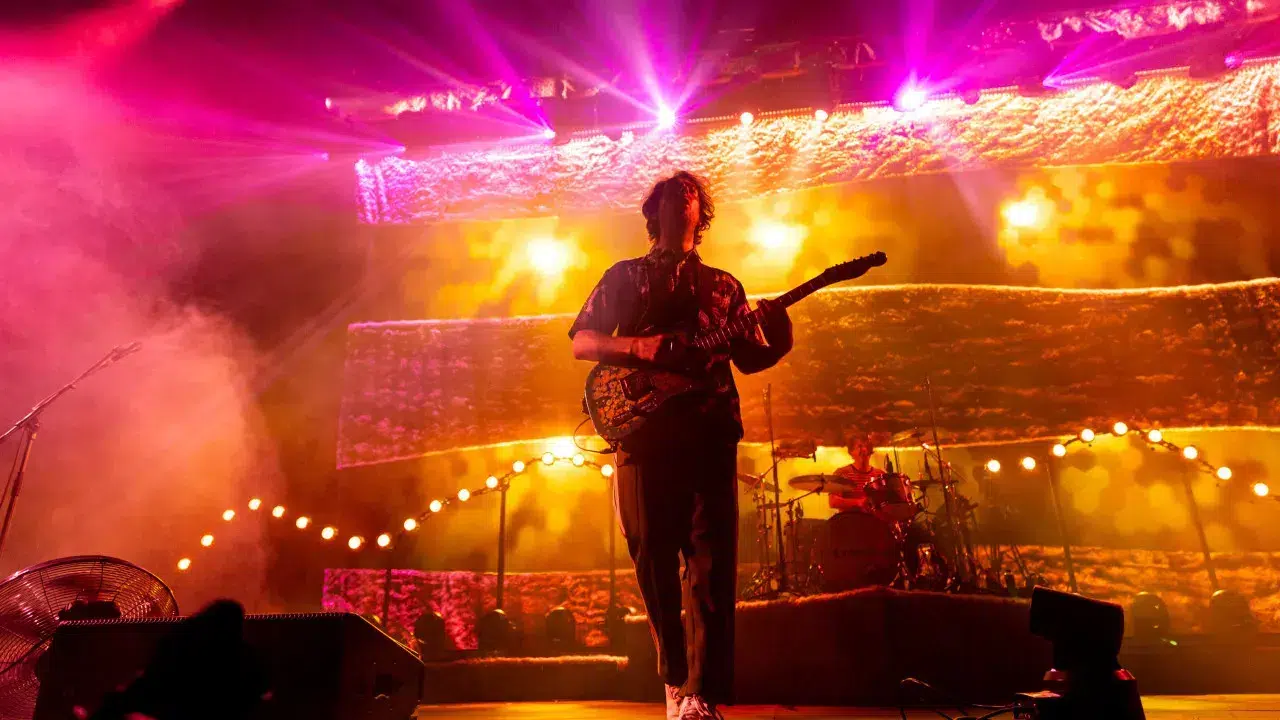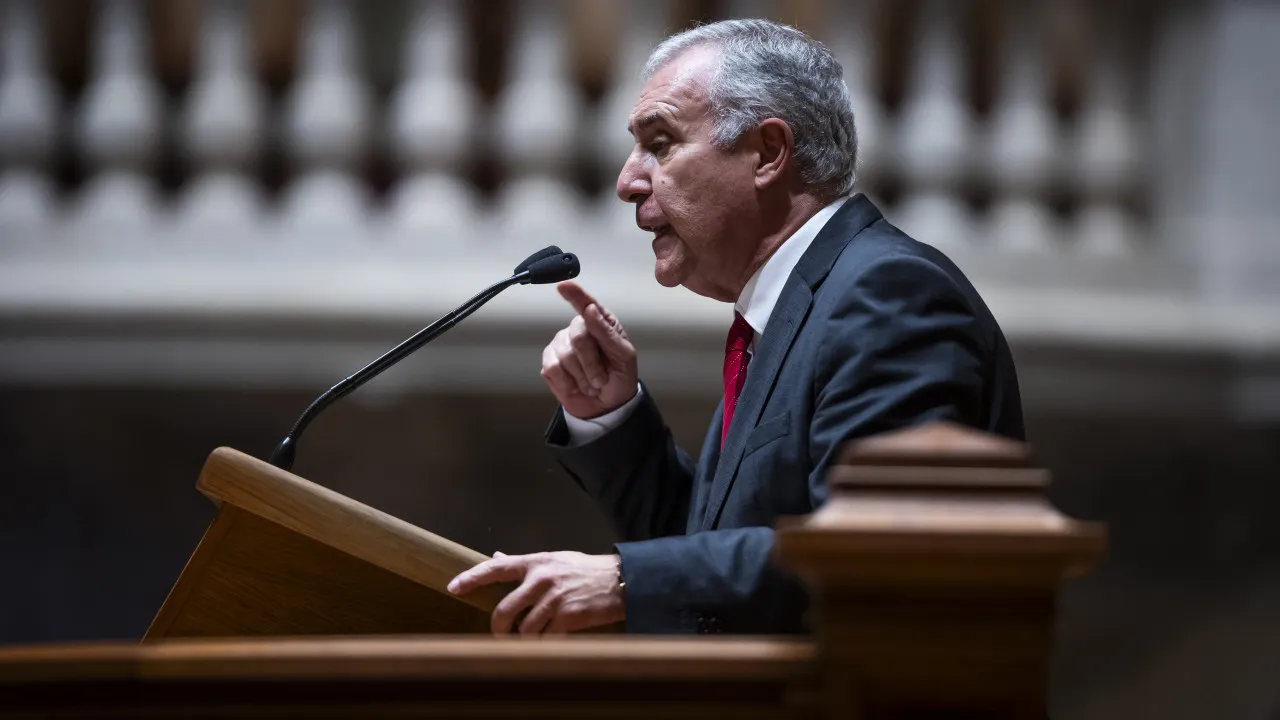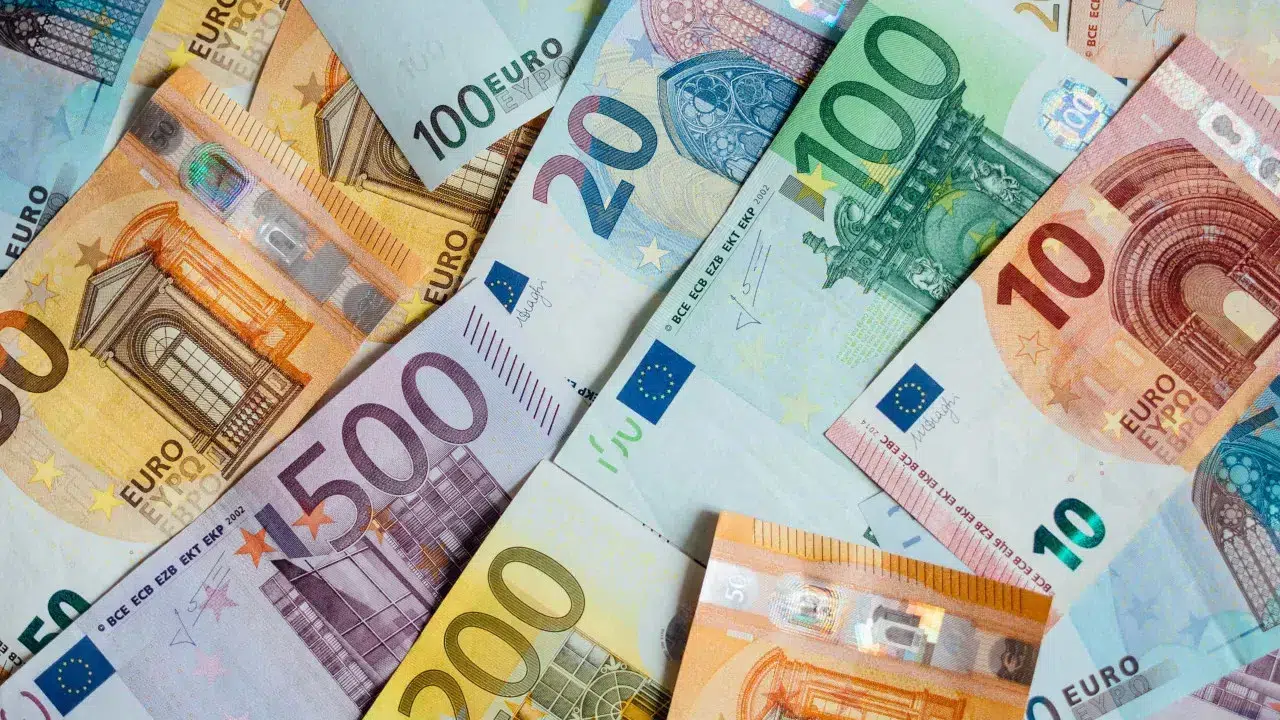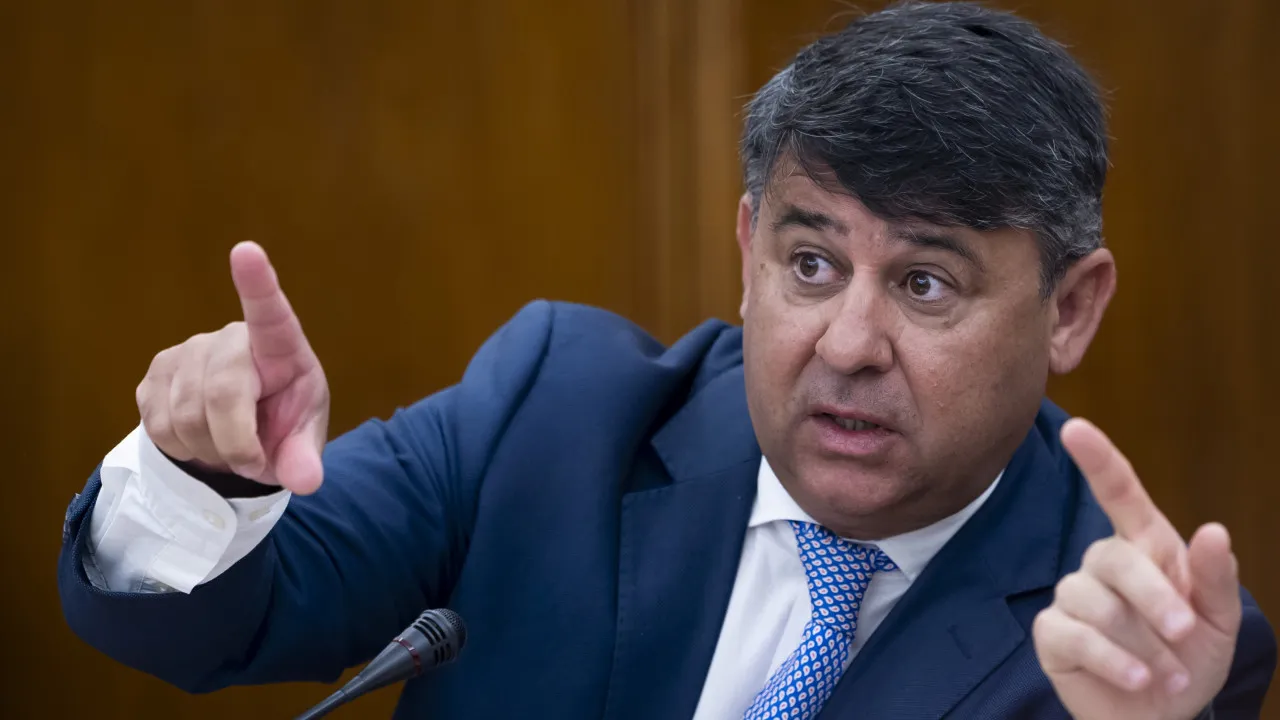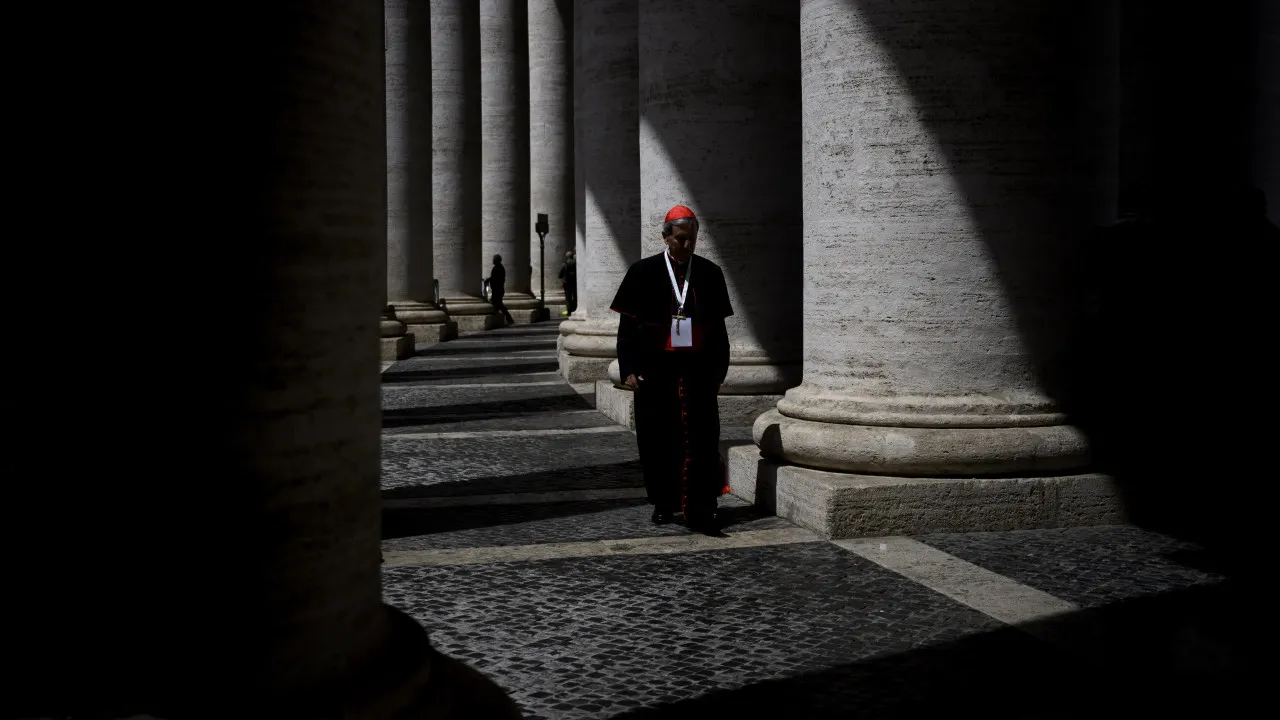
In addition to the four Portuguese cardinal electors—António Marto, Américo Aguiar, Manuel Clemente, and Tolentino de Mendonça—there are nine other Portuguese-speaking cardinals: seven Brazilians, one from Cape Verde, and one from East Timor.
The conclave will commence on Wednesday, May 7, and it will be the responsibility of the 133 cardinal electors, all under the age of 80, to choose the successor to Francisco.
Each day will feature four voting rounds, and the future Pope must secure at least two-thirds of the votes.
Here is a brief profile of each of the Portuguese-speaking electors:
António Marto
António Augusto dos Santos Marto, the eldest of the four Portuguese cardinal electors, served as the bishop of Viseu and of Leiria-Fátima, where he presided over the centennial celebrations of the Marian apparitions at Cova da Iria.
Born in 1947 in Flavienses, he was ordained a priest in Rome in 1971, where he continued his studies and completed his doctorate six years later with a thesis on “Christian Hope and the Future of Man. Doctrine of the Second Vatican Council.”
Closely affiliated with Catholic student and worker movements, he worked in factories before April 25 and maintained strong ties with Portuguese emigrants.
He taught at the Catholic University of Portugal and served as a parish priest in several locations within the Diocese of Porto before being appointed auxiliary bishop of Braga in 2000.
Four years later, he became the diocesan head of Viseu and was one of two Portuguese bishops present at the Synod of Bishops the following year.
In 2006, he succeeded Serafim Ferreira e Silva as the bishop of Leiria-Fátima, a role that brought him significant visibility, hosting visits from two Popes, Benedict XVI (2010) and Francis (2017).
Through his pastoral work in Fátima, he emphasized themes such as the environment and peace, aiming to update the Marian message of 1917.
After celebrating the centenary of the apparitions, he was elevated to cardinal by Pope Francis and left the diocese in 2022 due to age limits.
Américo Aguiar
Américo Aguiar is the youngest Portuguese cardinal at just 51 years old, having been elevated by Pope Francis two years ago, shortly after the World Youth Day, an organization he presided over.
Born in Leça, Matosinhos, Aguiar was ordained a priest at 27 and a bishop at 47, serving as an auxiliary of the Patriarchate of Lisbon.
As an auxiliary bishop, he held the presidency of World Youth Day Lisbon 2023, the entity that organized the major gathering of Catholic youth in Lisbon from August 1 to 6, 2023.
Weeks before World Youth Day, the Pope announced that Aguiar would become a cardinal, having been appointed as head of the Diocese of Setúbal in September 2023.
Before these roles, he was an administrator of the Renascença group, director of the National Communications Office, national chaplain of the Portuguese Firefighters League, and coordinator of the Diocesan Commission for the Protection of Minors and Vulnerable Persons of the Patriarchate of Lisbon.
In the diocese of Porto, where he worked most of his life as a priest, he served as a parish priest in Campanhã and Sé, also taking on roles as vicar general and chief of staff to Bishops Armindo Lopes Coelho, Manuel Clemente, and António Francisco dos Santos.
As a “Golden Dragon” and a Porto supporter, he co-presided over the funeral ceremonies of former FC Porto president Pinto da Costa and was a member of both the parish assembly of Leça do Balio and the municipal assembly of Matosinhos when Narciso Miranda led the local council.
Manuel Clemente
Cardinal Manuel Clemente was one of the first appointees by Francis, who, weeks after his election, transferred Clemente from the diocese of Porto to the Patriarchate of Lisbon, succeeding José da Cruz Policarpo, who was gravely ill at the time.
Born in Torres Vedras in 1948, he became the oldest of the four cardinals to be ordained as a priest, at 31, after earning a degree in History and a doctorate in Historical Theology.
He held roles in Western parishes before becoming the rector of the Seminário dos Olivais and was later appointed as an auxiliary bishop.
His career was closely tied to the scouting movement, and he participated in national retreats and camps until just a few years ago.
His work on Catholic social movements in Portugal and the coordination of several historical research projects, such as “Church and Portuguese Society, from Liberalism to the Republic,” earned him the Pessoa Prize when he was still leading the Diocese of Porto after serving as an auxiliary in Lisbon for many years.
As bishop of Porto, he welcomed Pope Benedict XVI during his Apostolic Visit to Portugal in 2010, focusing on revitalizing the pastoral work of the Diocese.
He has been a cardinal for ten years, a title traditionally awarded since the 18th century to those leading the Patriarchate of Lisbon. He left the position in 2023, succeeded by the current leader, Rui Valério.
The end of his term coincided with World Youth Day, held in Lisbon, where he welcomed Pope Francis in one of the largest manifestations of Catholic faith in Portugal in recent years.
Tolentino de Mendonça
Madeiran José Tolentino de Mendonça currently serves as the prefect of the Dicastery for Culture and Education. A poet awarded the Pessoa Prize in 2023, he is also an essayist, playwright, academic, and theologian elevated to cardinal in 2019.
Born in Machico, Madeira in 1965, he lived in Angola until he was nine. He was ordained a priest in 1990 for the Diocese of Funchal, earning a master’s in Biblical Sciences in 1992 and a doctorate in 2004 in Biblical Theology from the Catholic University of Portugal, where he taught upon moving to Lisbon.
In 2010, he was named rector of the Chapel of Rato, a prestigious position within the Patriarchate of Lisbon, combining this role with his academic career—as vice-rector of the Catholic University of Portugal—and writing, with many published works.
In 2011, invited by Benedict XVI, he became a consultant to the Pontifical Council for Culture, and in 2018, under Pope Francis, he was elevated to bishop and then cardinal the following year.
In 2020, he received the European Helena Vaz da Silva Award and organized the 50th anniversary of the inauguration of the Vatican Museums’ Modern Art Collection.
Two years later, following the reform of the Roman Curia, he assumed the role of prefect of the newly established Dicastery for Culture and Education, merging the Congregation for Catholic Education and the Pontifical Council for Culture.
Brazilian Cardinal Electors
Currently serving as the president of the Latin American Episcopal Council, Franciscan Jaime Spengler, aged 64, was elevated to cardinal by Pope Francis. As the archbishop of Porto Alegre, he is regarded as a progressive leader and heads the National Conference of Bishops of Brazil.
Cardinal João Braz de Aviz, appointed by Benedict XVI, was born 77 years ago in southern Brazil. He previously served as the archbishop of Brasília and prefect of the Dicastery for Institutes of Consecrated Life and Societies of Apostolic Life in the Vatican, known for his progressive stance and support for liberation theology, a doctrine condemned by the Vatican in the 1980s and 1990s.
Franciscan Leonardo Ulrich Steiner became a cardinal three years ago and serves as the archbishop of Manaus. He holds degrees in philosophy and pedagogy and continues to work in missionary roles with indigenous communities in the Amazon.
Odilo Pedro Scherer, 75, was once seen as a leading Latin American candidate to succeed Pope Benedict XVI in 2013. He remains in charge of the archdiocese of São Paulo, a position from which he requested resignation but continues to serve.
Orani Tempesta is the only Cistercian cardinal in the conclave. As the current archbishop of Rio de Janeiro, following a similar role in Belém, Pará state, he became a cardinal in 2014. He also hosted Pope Francis during the World Youth Day in 2013.
Paulo Cezar Costa, aged 57 and appointed by Pope Francis, serves as the archbishop of Brasília, succeeding Sérgio da Rocha. He was previously the titular head of São Carlos in São Paulo state.
Sérgio da Rocha, 65, is the sole Portuguese-speaking member of the Council of Cardinals—a consultative body for Pope Francis in the Roman Curia reform project—and leads the diocese of São Salvador da Bahia, a role that elevates him to the status of Primate of Brazil.
Cape Verdean Cardinal Elector
Arlindo Gomes Furtado, aged 75, is the first Catholic cardinal from Cape Verde and serves as the current bishop of Santiago, the first African diocese established after the Discoveries. Previously the bishop of Mindelo, he transitioned to the capital in 2009 and was elevated to cardinal six years later.
East Timorese Cardinal Elector
At 57, Virgílio do Carmo is the first Catholic cardinal from East Timor and holds the position of archbishop of Dili. He served as the provincial superior of the Salesians in East Timor and Indonesia and hosted an apostolic visit from Pope Francis in September 2024.

